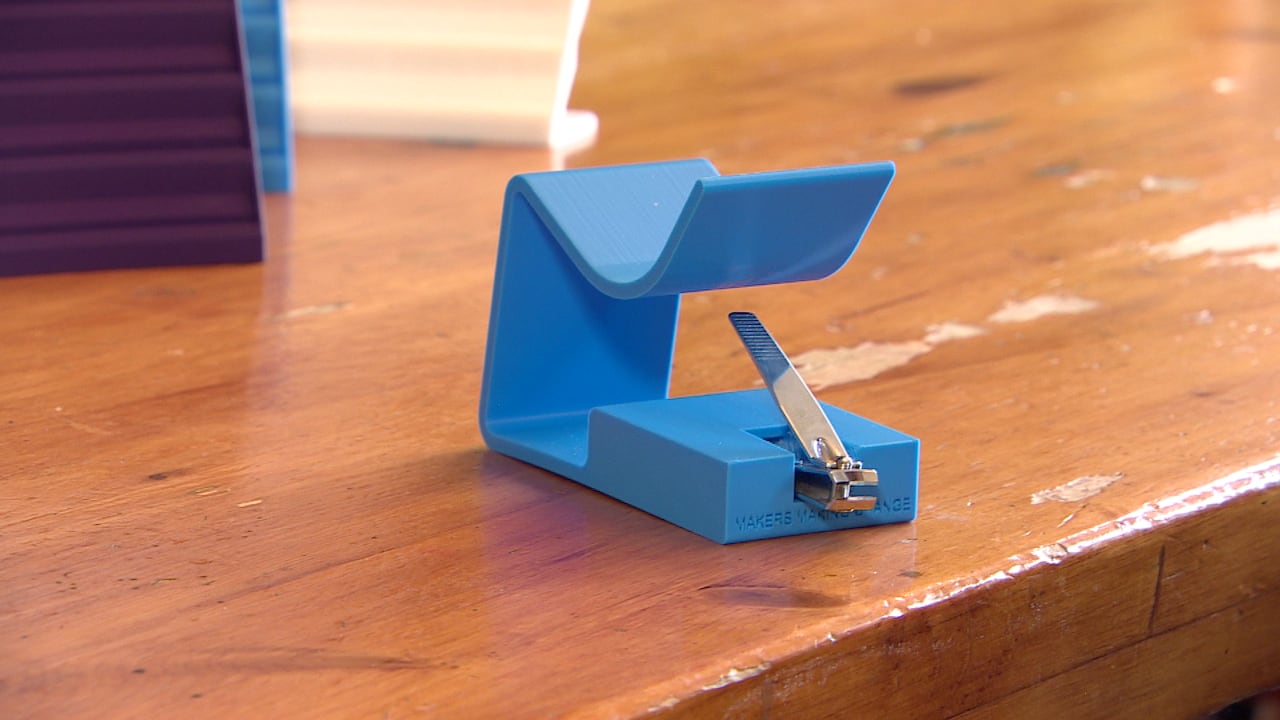Nicholas Waagen is using 3D printing to help people with disabilities live their lives to the fullest.
He was a computer science student in 2020 when he suffered a traumatic brain injury in a car accident. He has limited use of his right side and memory problems.
“I spent a very long time in rehab,” he said in an interview at his home in Warman, north of Saskatoon. “I don’t remember much from that time, I was an outpatient for a while, but after all the treatments I was back to trying to live with a significant disability.”
Waagen found himself frustrated by some tasks that many people without disabilities consider routine, such as cutting nails and reading books. He also found that there weren't always tools readily available for these tasks.
“There are a lot of assistive technologies out there, but they come with the caveats of needing to use this core program or this particular software,” he said.
“It's very limited. And I don't like being limited.”
A Saskatchewan man is using 3D printing to help people with disabilities live their lives to the fullest. Nicholas Waagen began creating tools to help people with disabilities cope with everyday tasks after a car accident in 2020 left him with limited use of his right side and memory problems.
He learned about the Makers Making Change program run by the Neil Squire Society, a non-profit organization that uses technology to help people with disabilities. The Makers Making Change program connects makers with people with disabilities who need adaptive technology.
Waagen saw that he was offering grants to people to buy 3D printers to make tools.
“I thought, 'I want to create assistive technology.' So I applied and was accepted,” he said.
At first, Waagen relied on diagrams provided by Makers Making Change. The first thing he printed was a stand that could hold a set of nail clippers to make them easier to use for a right hand that lacks dexterity.
“It's not that I couldn't do it. I couldn't do it without that particular thing. And getting that particular thing was great because it increased my independence,” he said. “I was able to do it 100 percent on my own, and that gave me strength.”

Vaagen wanted to go further and develop the instruments himself. He purchased 3D modeling software and, after some training, began creating his own designs.
His first creation was a modification of an existing tool to help people with double vision focus on specific lines of text. It didn't work, but he wasn't upset.
He's designed and printed a variety of tools, from an adapter that allows him to play the Nintendo Switch with one hand to stands for people who can't hold playing cards.
He stressed that similar tools for less important life tasks are still important.
“Just because you have such different levels of ability doesn’t mean you can’t enjoy life equally,” he said. “You must know how to play cards.”

A 2022 Statistics Canada survey found that 32.7 per cent of people with disabilities have unmet needs for assistance with activities of daily living.
These activities range from household chores and personal hygiene to cooking and taking care of personal finances.
Makers Making Change says on its website that its goal is to help bridge this gap through DIY assistive technology—devices created by the community and built by volunteer makers.
Vaagen's latest project is an adapter that will make door handles easier to use for a woman whose arthritis prevents her from holding a regular door handle.
He said he's looking for more people from Saskatchewan to help and wants to get the word out.
“I have more desire to work on something than I have something to work on,” he said.
“I'm looking for people to reach out to me, and I'll work with you.”
He can be contacted by email at [email protected].







